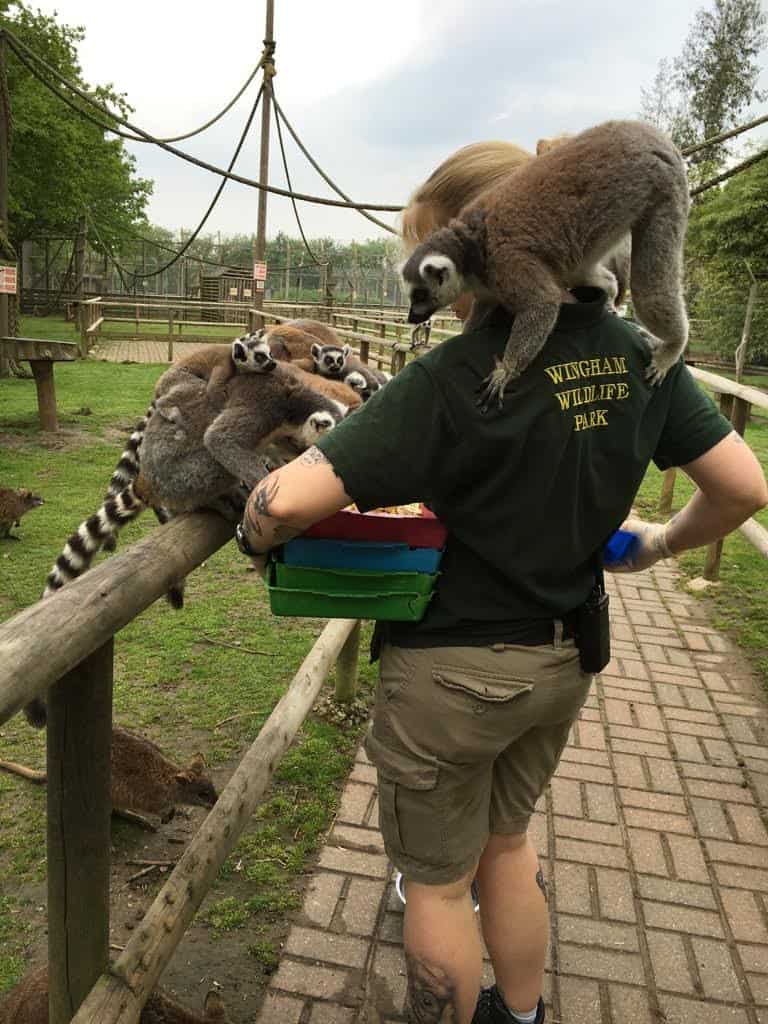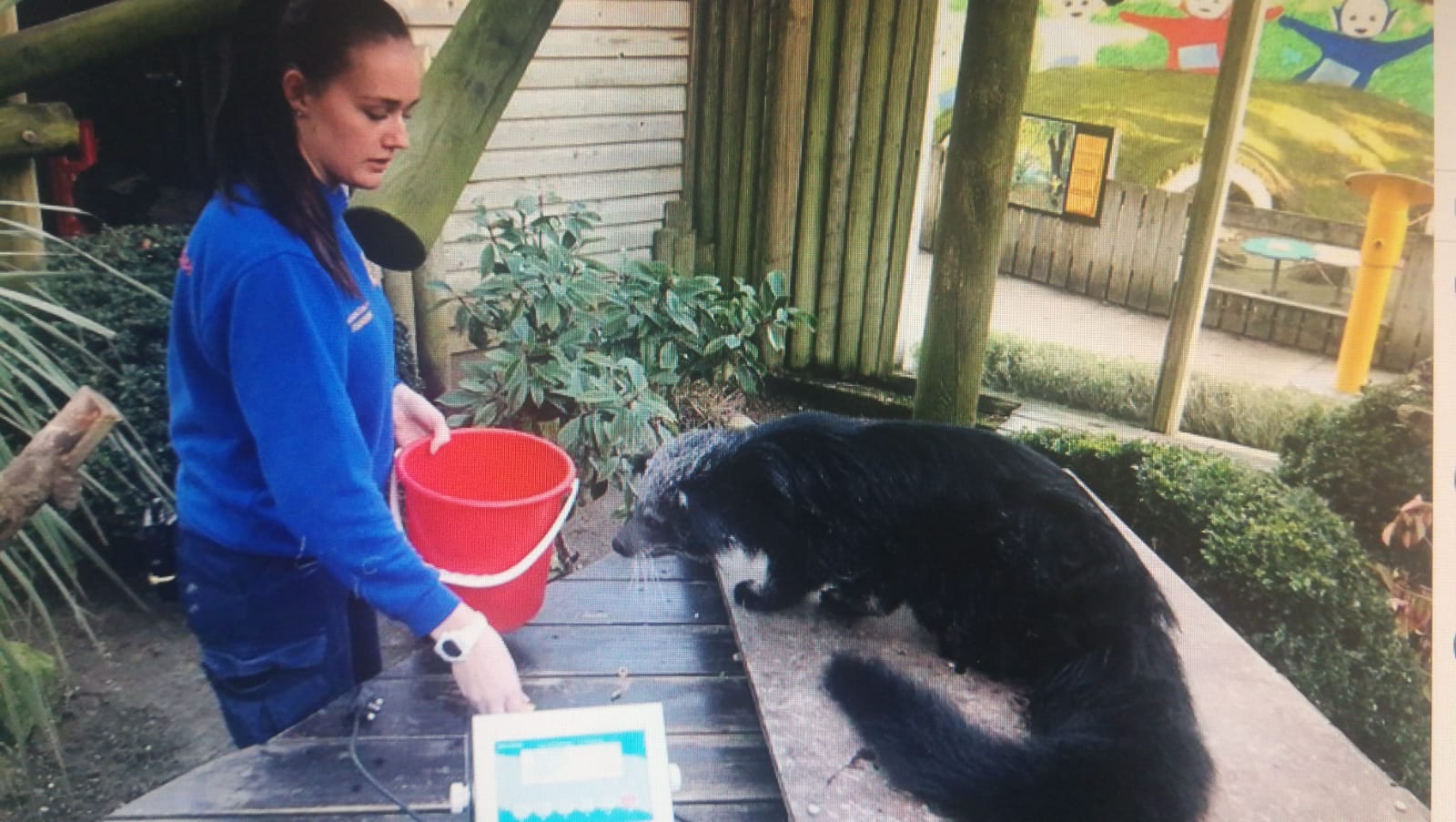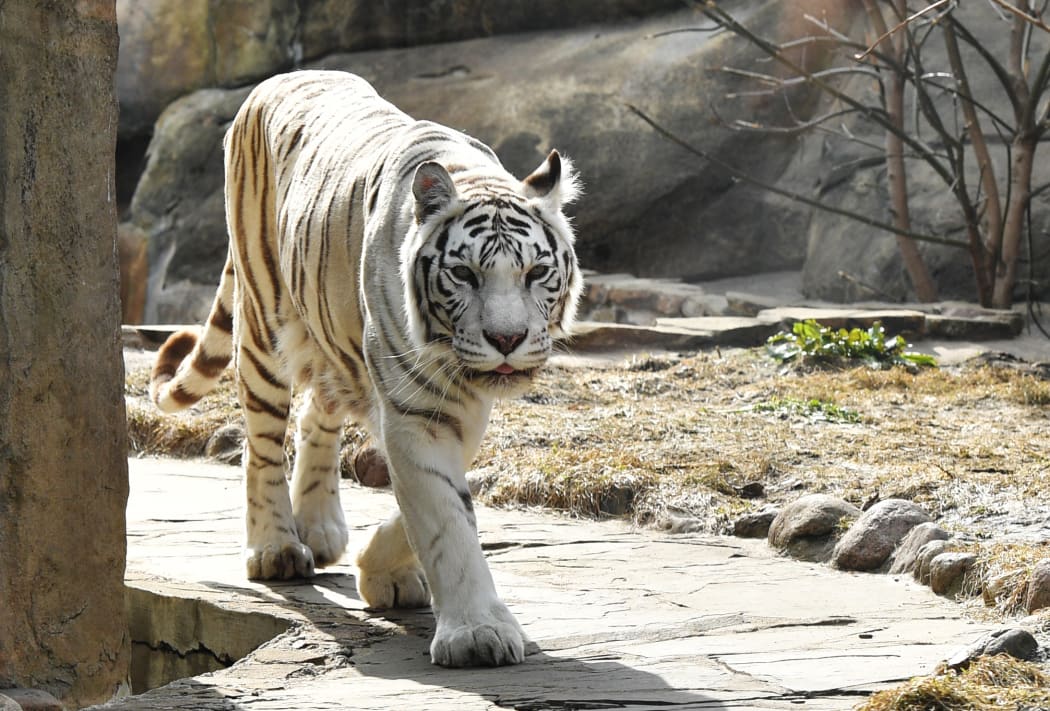How To Become A Zoo Keeper?
페이지 정보
작성자 Nydia 작성일25-02-11 01:26 조회28회관련링크
본문
"The success of a country and its ethical progress can be judged by the way its animals are treated." - Mahatma Gandhi

Do you love animals and dream of operating in a zoo? Zoo keepers are key in securing wildlife and caring for animals. At places like the Zoological Society of London (ZSL), over 20,000 animals get the care they need from specialists.

To become a zoo keeper, you require hard work, education, and a love for animals. This task is exciting, letting you work with lots of species and assist with crucial preservation work. If you're into wildlife or animal welfare, zookeeping might be perfect for you.
Beginning your zoo keeper career implies discovering what's required. This guide will cover education, experience, and more. It's all you need to understand to begin a satisfying zookeeping career.
Comprehending the Role of a Zookeeper
Exploring what a zookeeper does exposes a role loaded with difficulties and rewards. They focus on animal welfare and conservation. Zookeepers strive to keep animals healthy and delighted in their care.
Daily Responsibilities and Tasks
A zookeeper's day is filled with essential tasks:
- Preparing meals that fulfill each animal's nutritional needs
- Cleaning up enclosures to keep them tidy and safe
- Supervising animal health and behaviour
- Giving medications and treatments as needed
- Producing activities to keep animals mentally sharp
Workplace and Conditions
Zookeepers work outside in all kinds of weather. They manage both indoor and outdoor areas. The job requires being fit and able to deal with the demands of taking care of animals.
"Being a zookeeper is more than a job - it's a passionate commitment to animal care and preservation."
Kinds of Animals and Specialisations
Zookeepers can specialise in many animal groups:
- Primates
- Big cats
- Marine mammals
- Reptiles
- Birds
Your function might involve dealing with 2-5 various animal types. This needs a great deal of knowledge and the capability to adapt.
Important Skills and Personal Qualities for Zoo Keeping
To be a top zookeeper, you need more than simply a love for animals. Your task will be difficult and require you to manage animals and people well. You'll also require to understand animal behaviour.
What zoos try to find in people consists of:
- Exceptional persistence and emotional strength
- Strong physical conditioning and zookeeper endurance
- Eager observation skills
- Ability to stay calm under pressure
- High level of empathy towards animals
Getting hands-on experience is key to mastering this function. You'll require to show:
- Advanced understanding of animal care strategies
- Efficiency in animal handling and security procedures
- Efficient communication with both animals and human visitors
"A terrific zookeeper links science, compassion, and preservation in every interaction with animals."
You ought to know about animal nutrition, behaviour, and basic veterinarian care. The majority of zookeepers learn through training, volunteering, and continuous learning.
Zookeeper work is not simply a job. It's a big dedication to teaching about wildlife and assisting conservation. Your passion and effort will make you stand out in this fulfilling profession.
How to Become a Zoo Keeper
Starting a career as a zookeeper requires mindful planning and education. You must initially understand the instructional needs and training courses. These will turn your love for animals into a task.
Educational Requirements
To be an excellent zookeeper, you need a strong scholastic base. Many jobs search for certain credentials:
- At least 5 GCSEs at grade 4 or above, consisting of English, maths, and science
- A levels or college credentials
- A college degree in biology or animal science
- Level 3 Diploma in Animal Management
Necessary Certifications
Getting special accreditations can actually help you in your zookeeper career. Essential ones include:
- Diploma in Management of Zoo and Aquarium Animals (DMZAA)
- Zookeeping Level 3 Diploma (RQF)
- Animal handling certificates
- First aid qualifications
Training Programs and Apprenticeships
Getting hands-on experience is type in zookeeper training. Numerous places use fantastic chances:
- Unpaid apprenticeships at wildlife parks
- Internship programs at well-known zoos
- Practical training at places like Colchester Zoo and Dartmoor Zoo
- Volunteering to acquire real-world abilities
Pro idea: Create a detailed portfolio to reveal your animal care skills. It will help you in task applications.
Structure Relevant Experience in Animal Care
Gaining hands-on experience is essential for those wishing to be zookeepers. The job is very competitive. So, it's important to begin building a strong base in animal care.
Your journey starts with discovering methods to work directly with animals. This is a tactical action.
"Experience is the best teacher in animal care" - Wildlife Conservation Experts
Here work methods to acquire experience dealing with animals:
- Volunteer at local animal shelters to develop fundamental animal dealing with skills
- Look for internships at wildlife rehab centres
- Explore part-time positions at veterinary clinics
- Contact your local zoo for possible volunteer opportunities
Volunteering is an excellent method to discover animal behaviour and care. Many zoos and animal shelters are searching for individuals who wish to find out. These locations offer great chances to get hands-on experience and show your commitment to animal welfare.
Here are some pointers to make the most of your experience:
- Keep a record of your skills and interactions
- Connect with experts in animal care
- Request for referrals and recommendation letters
- Stay persistent and reveal your true passion
Keep in mind, practical experience makes you stand out in the zookeeping world. Each time you deal with animals, you learn more. This increases your opportunities of getting a job in animal care.
Career Pathways and Professional Development
Starting a profession as a zookeeper is amazing. It uses numerous chances to grow and specialise. Your journey starts with comprehending the various paths in this field.
Entry-Level Positions
Entry-level jobs in zookeeping are a terrific start. They offer you hands-on experience. Zoos look for candidates with:
- Level 2 Diploma in Animal Care (minimum credentials)
- GCSEs in English and a clinical topic
- Volunteer experience at animal shelters or farms
Career Progression Opportunities
As you acquire experience, your career can grow. You can move up to:
- Junior Keeper
- Senior Keeper
- Team Leader
- Expert Roles
"Continuous knowing and useful experience are crucial to advancing in your zookeeping career."
Specialised Roles
You can also choose unique areas like:
- Conservation breeding programs
- Animal training
- Wildlife research study
- Educational outreach
About 25% of zookeepers get advanced degrees in zoology or animal preservation. Getting Level 4 qualifications can boost your possibilities for senior functions and research study.
Working Hours and Physical Demands
Becoming a zookeeper implies you'll work more than simply regular hours. You'll deal with difficult physical obstacles and require to be versatile, including weekends and holidays. Zoos are open every day, so you'll typically work when others unwind.
"Zoo keeping is not a normal 9-to-5 task-- it's a way of life of dedicated animal care and dedication."
This task is physically demanding. You'll work outside in any weather, lifting heavy items over 50 pounds. Your jobs might include:
- Early morning feeding schedules
- Cleaning animal enclosures
- Preparing specialised diets
- Conducting medical examination
- Keeping complex environments
Shifts can begin as early as 5 AM and go late into the night. You'll be on your feet the majority of the time, moving between animal zones. Weekends and holidays become part of the job, needing lots of endurance and devotion.
Regardless of the obstacles, this job has great benefits. You'll grow strong, both physically and mentally. You'll also make incredible connections with extraordinary animals.
Health And Wellness Considerations
Being a zookeeper comes with its own set of challenges. It's important to understand how to keep both animals and staff safe. This means following strict health and wellness rules.
Zookeepers face an unique environment where safety is essential. Research studies show that health and wellness are now as important as the zoo's main work.
Risk Management Strategies
There are several ways to handle threats in zoos:
- Daily checks of animal enclosures for risks
- Counting animals at the start and end of shifts
- Viewing how visitors act near animals
- Being ready for emergency situations
Animal Handling Safety Protocols
Understanding which animals are most hazardous is important. Big animals like rhinos can be very risky. There have been cases where zookeepers got seriously harmed.
Security isn't almost wearing gear - it's about knowing animal behaviour and staying alert.
Individual Protective Equipment
Zookeepers require to use the right gear, consisting of:
- Special gloves for dealing with animals
- Strong shoes for grip and security
- Clothes that secures against germs
Getting immunized against illness like hepatitis B and rabies is also key. It assists keep zookeepers healthy in their tough job.
Income Expectations and Job Market
Thinking about a career in zoo keeping? It's important to learn about incomes and the job market. The field is growing, with more opportunities in the UK.
Let's take a look at what zoo keepers can earn at various stages:
- Entry-level zookeepers begin at about ₤ 14,000 a year
- Certified ones make in between ₤ 16,000 and ₤ 22,000
- Senior zookeepers can make as much as ₤ 30,000 or more
The job outlook for zoo keepers is great. The sector is anticipated to grow by 5% in the UK by 2029. This means around 3,910 new jobs will be readily available.
"The Association of Zoos and Aquariums supports expert development for zoo keepers," a report says.
Incomes vary based upon several things:
- Experience level
- Expertise
- Where you work
- The zoo's size and type
While the pay may not be high, the pleasure of working with animals is invaluable. The typical income is around ₤ 17,000. But, overall incomes can be in between ₤ 13,000 and ₤ 27,000 a year.
Conclusion
Beginning a career in animal care is an interesting journey. It needs commitment, enthusiasm, zookeeper and a love for knowing. With over 350 zoos and zookeeper wildlife places in the UK, there are many task chances. You'll get to work with remarkable animals and help secure wildlife.
To be a zoo keeper, you need more than just love for animals. You need to have a good understanding of biology, be able to interact well, and always want to discover more. You'll gain hands-on experience, find out about animal welfare, and develop a for nature. About 3,000 individuals in the UK have actually discovered satisfying careers in this field.
Your success in zoo keeping originates from blending science with a love for animals. Whether you're interested in mammals, birds, or marine life, this task lets you aid with preservation. Every day will bring brand-new difficulties and discovering opportunities that will improve your skills and knowledge.
If you like animals and wish to help secure wildlife, zoo keeping might be for you. Take on the difficulty, remain curious, and turn your enthusiasm for animals into a gratifying profession.

댓글목록
등록된 댓글이 없습니다.







